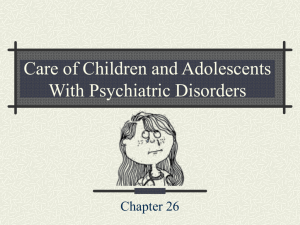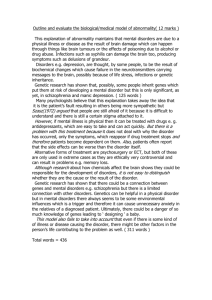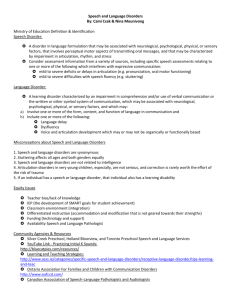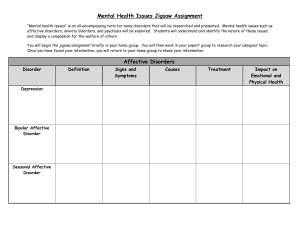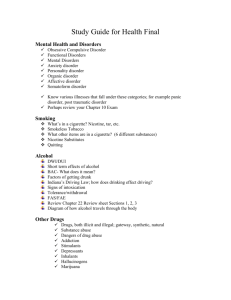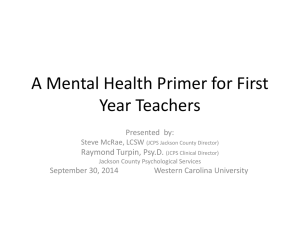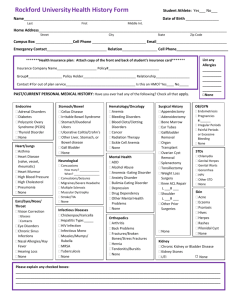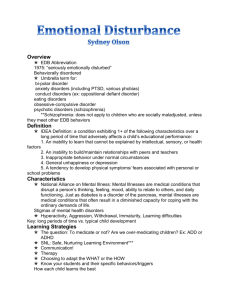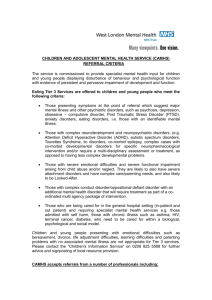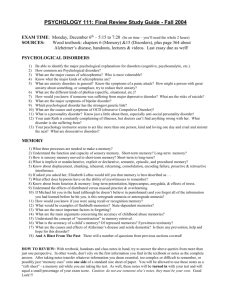Social Work in Mental Health Settings
advertisement
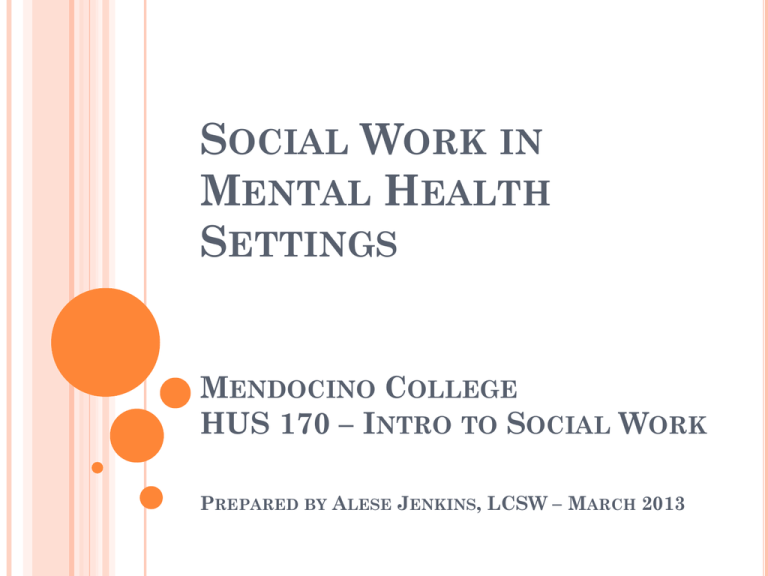
SOCIAL WORK IN MENTAL HEALTH SETTINGS MENDOCINO COLLEGE HUS 170 – INTRO TO SOCIAL WORK PREPARED BY ALESE JENKINS, LCSW – MARCH 2013 WHAT IS DIFFERENT ABOUT SOCIAL WORK IN A MENTAL HEALTH SETTING? Social Work is a secondary function in the Mental Health setting (as is social work in a medical setting, educational setting or criminal justice setting) The primary goal of the Mental Health setting is to help stabilize the individual’s mental and emotional health. SOCIAL WORK GOALS/VALUES IN THE MENTAL HEALTH SETTING Respect the dignity of the client Respect a client’s right to self determination, when appropriate Advocate on behalf of client/teach client selfadvocacy skills Maintain confidentiality Help empower clients Encourage independence when possible Work in harmony with team/institution Be culturally sensitive see page 198 in text NASW recommendations for working with mental health clients WHAT SPECIAL KNOWLEDGE IS NEEDED TO WORK IN THE MENTAL HEALTH SYSTEM? Understand mental health disorders and become familiar with the DSM-IV-TR Understand mental health hospital and clinical settings, treatment options and therapeutic techniques Be familiar with in-patient and out-patient programs Understand the role of each member of the mental health team Understand discharge planning and become familiar with community resources WHO IS ON THE TYPICAL MENTAL HEALTH TEAM? Psychiatrist A doctor of medicine (MD) who can diagnose mental disorders and prescribe medication WHO IS ON THE TYPICAL MENTAL HEALTH TEAM? Psychologist A licensed PHD who can administer psychometric tests, diagnose mental disorders and offer psychotherapy WHO IS ON THE TYPICAL MENTAL HEALTH TEAM? Psychiatric Administers, Nurse manages and monitors medications and educates patients and family about medications, side effects and other health related concerns WHO IS ON THE TYPICAL MENTAL HEALTH TEAM? Social Most Worker often an MSW or LCSW. Gathers info for assessment, provides individual and group therapeutic services, develops a treatment plan, case management, advocacy, discharge planning and referral to community resources WHAT IS A MENTAL DISORDER? Impaired or dysfunctional cognitive or behavioral patterns that occur in individuals that cause suffering, pain or some level of disability From: Suppes and Wells “The Social Work Experience: An Introduction to Social Work and Social Welfare” WHAT AFFECTS THE MENTAL HEALTH OF AN INDIVIDUAL? WHAT AFFECTS THE MENTAL HEALTH OF AN INDIVIDUAL? Biological Factors Heredity Physical Trauma, Brain Injury Substance Abuse Infections Congenital Defects Malnutrition in early childhood Chronic disease Brain chemistry Menopause/hormonal changes WHAT AFFECTS THE MENTAL HEALTH OF AN INDIVIDUAL? Psychological Factors Childhood Trauma, such as emotional, physical, sexual abuse Childhood Neglect An important loss in life Trauma, at other stages of life WHAT AFFECTS THE MENTAL HEALTH OF AN INDIVIDUAL? Environmental Factors Crisis (exposure to natural disasters, etc) Lack of health care Poverty Chronic unemployment Stressful life experiences Loss Major life changes SOME COMMON MENTAL HEALTH DISORDERS: Dysthymia Major Depressive Disorder Generalized Anxiety Disorder Bipolar Disorders Post Traumatic Stress Disorder Schizophrenia Conduct Disorder Obsessive Compulsive Disorder Attention Deficit Hyperactivity Disorder THE DSM IV-TR A manual that is a system of classifications of mental disorders Diagnosis is determined by behavioral patterns that cause suffering and disability
